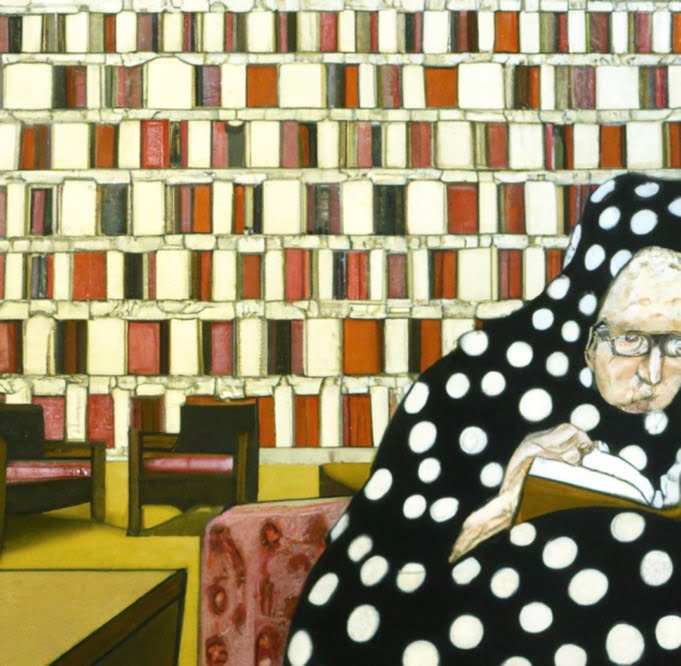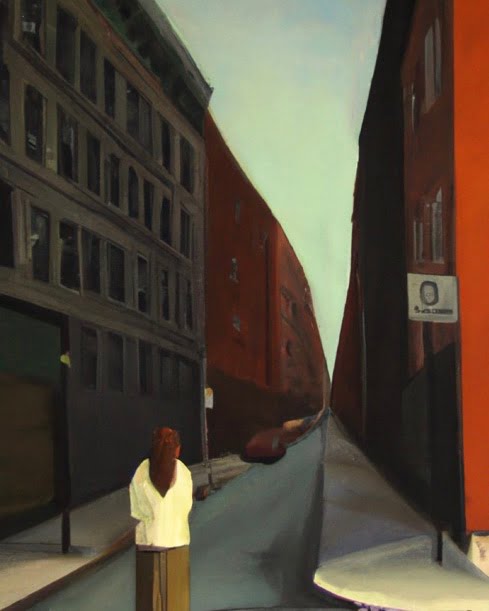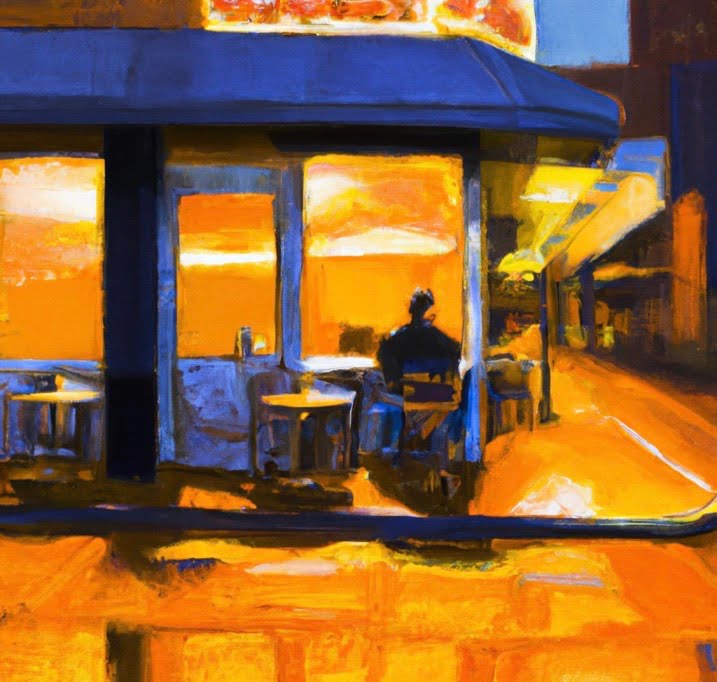Table of Contents
The Natural Non-conformist
Being intense, seeing the world through different eyes, and feeling the world on a distinctive wavelength means you, by default, function outside of the ‘norm.’ You may be the misfit, mystic, or visionary, and it is not easy. At the same time, no matter how hard you try, you cannot be what you are not.
It is natural to reject what is unfamiliar, strange, or beyond comprehension. That’s why it takes tremendous courage to be a nonconformist. Even if you had done nothing other than honoring your values and integrity, even if the way others treat you is entirely unjust, situations in which you are being silenced, misjudged, or attacked may still evoke intense feelings of vulnerability and shame, especially if they touch on some of your unhealed childhood injuries.
Becoming okay with not being ‘normal’ (i.e thinking and feeling ‘within the norm’) can bring enormous sadness and even temporary despair. We can grieve what we never had after all; your yearnings to belong, to be part of a tribe, to feel like a part of humanity is a big part of you. But alongside your sadness, there can also be an undeniable undercurrent of relief – finally, you can stop trying to be what you are not; gone is the burden of false impressions.

“We must never be afraid to be a sign of contradiction for the world.” – Mother Teresa
The Longing For Belonging
Belonging is difficult for many emotionally sensitive, intense, and gifted people.
Perhaps loneliness is a universal phenomenon, but you feel it more intensely, frequently, and penetratively.
The intimidating reality is that, at times, no language or image can fully capture how isolated and misunderstood you are.
Your heart breaks when you try to express the depth of your sorrow and the extent of your passion and be met so often with apathy, indifference, or incomprehension.
Long-awaited is someone who can plunge deeply into sorrow and soar high into ecstasy with you or the loving presence that goes beyond a surface understanding of your deep well of feelings.
Perhaps you have gone into despair after repeated cycles of infatuation, fantasy, and disappointment.
When we look at Maslow’s Hierarchy of Needs, belonging is seen as so important that it comes right after gratifying our need for food and shelter. It is, therefore, understandable that many of us would do anything to feel like we are a part of something.
However, if you do not fit society’s conventional definition of ‘normal,’ is it worth sacrificing your truth or contorting yourself to fit in?
‘Authenticity’ has become one of those buzzwords, overused online and in social media to the extent that it has almost lost its meaning. Throughout history, many philosophers, theologians, social theorists, and thinkers have explored the idea of authentic living. For instance, the existentialist philosopher Heidegger (1995) suggested that being authentic means reclaiming oneself from unexamined conformity. He even named the call for authenticity within ourselves the “call of conscience,” not in a moralistic sense, but because it is the ultimate responsibility of each of us to realign our being with our true selves and strip away the expectations placed upon us.
Living outside of the ‘norm’ is always going to be difficult. Although more and more scholars and professionals are embracing the idea of ‘neurodiversity’— the acknowledgment that particular groups of the population are innately different from the norm, the majority of society remains unaware of this biological reality, and most people tend to misjudge minorities groups that they do not understand.
How long have you been trying to fit in when you don’t?
Maybe you have sacrificed your rights, silenced your voice, or endured much discomfort to be like everyone else.
Can you feel like you truly belong if you are not yourself?

I am not sick. I am broken. But I am happy to be alive as long as I can paint.
Frida Kahlo
Rethinking What it Means to Be Different
You might have spent your whole life thinking there is something wrong with you for being different, but what if there is a meaning to your unique life path? What if you are an inspiration? What if others need to learn to be tolerant of diversity?
We no longer live in homogenous tribes and villages, and exposure to the unfamiliar is inevitable, even when it is uncomfortable. By honoring your idiosyncrasies and demonstrating self-acceptance, you are actually serving others and helping them grow. What if, by the universe’s design, that is your mission of this lifetime? There is so much mystery as to why we are here that is beyond our comprehension. Still, perhaps you are a gift to the group because you have opened other people’s eyes to the unfamiliar, broadened their horizons, and equipped them and the next generation for our increasingly sophisticated and hyper-connected world.
Just because others reject you doesn’t make you wrong. Even if the MAJORITY of the world rejects you, that is still not ‘evidence’ that something is wrong with you. You are different, yes. But that doesn’t make you bad, wrong, or defective. Your life is harder than most, yes. You will be misunderstood and sidelined, but that still does not make your values and the way you are inferior in any way. It does perhaps mean you need to be better equipped for the bruises and attacks life has in store for you; it may make you scream, again and again, that ‘life is unfair.’ But life has never promised fairness. What it does promise, though, is that if you do not resist but rather live out your legacy- what you are REALLY here to do, you will find joy and fulfillment by growing into who you are.
Honing the skills to survive other people’s judgments and attacks is an ongoing practice. It involves learning to stay grounded in your secure base (made up of your self-love, a firm system of beliefs, an inner circle of those who see and accept you, and a sense of spiritual trust that life is on your side), despite what goes on outside of you.
It is not an easy dilemma, but you are not alone in this. We are all doing this human dance and finding our way through. To live fully and wholeheartedly, we ought to develop a strong mental muscle that holds the multiplicity and complexity of human dynamics. Gradually, you will find a small, still space amongst the tension between sameness and difference, anger and compassion, action and acceptance.
Ultimately, when it comes to human relationships and finding your place in the world, I do not wish for you an ‘easy’ path but one that is rich, stimulating, fulfilling, and vividly alive.
“Home is where your people are.”
Finding Refuge in a Community of Loners
For the emotionally intense and gifted, it is important to acknowledge that where you find your ‘true home’, or your sense of belonging, is no longer limited by your geographical location or biological bonds. If you are born into a family with a limited capacity to understand the depth of your being, you may have to seek your spiritual or psychological refuge elsewhere. Thanks to the internet, you can connect with like-minded people from the other side of the world, and you can also seek resonance in the arts, literature, and music.
From when you were a young soul, you have been healing through the arts and wider connectivity without consciously knowing it. You have sought refuge in solitude, libraries, music, and cinema.
When you saw characters in films and books who were heroic misfits, you also witnessed how they created their own beauty and meaning. They gave you hope through their courage and love, for you recognized that in your soul on a deep level.
Even when your home life had been claustrophobic and alienating, you sought solace from knowing that you were not alone. From when you were a little child, your heart knew where to go for solace. So keep going, follow your nose- allow yourself to be moved, pushed, inspired, and guided by anyone and anything that brings you tears, laughter, and awe. They are the mirrors to the answers you seek, which have always been, and always will be, in you.
“He who obeys, does not listen to himself!”
― Friedrich Nietzsche
Authenticity Over Perfection
Any human expression is a creative act, a public art form. You do not create meaning only when you call yourself an artist or a writer. You do so by showing up every day to life: cooking a meal, solving a conflict, or having a good conversation. And in this art, your unapologetic authenticity is unmistakably compelling, more so than being ‘beautiful,’ ‘original,’ or even ‘creative’ in a conventional way. Realness will always be more powerful than a facade of perfection when you make your mark in the world.
When we hear words and see radically truthful images, stemming from the core of one’s being, we are instantly impacted, connected, and a real conversation begins, as if in a kind of spiritual union. You know what this is like. You know it when someone dares to be raw and expose parts of themselves. You know it when you hear a powerful speech, hear a resonating song, or read a poem that speaks to your soul.
So when it is your turn, see if you can forget about social appropriateness and conventional wisdom. Discard perfection or the facade of okayness.
To truly connect with anyone, you must show up as who you are, with all your imperfections and struggles. If being you makes you feel unbearably lonely, you ought not to dismiss your heartache and longing, as they are the vehicles to finding your people. In a strange, paradoxical way, you can find some refuge in letting the loneliness of being intense bring you to a community of loners.
Your tribe exists, even if it is harder to find, even if your friends are dotted around the world, cutting through time and space. You may have to look beyond your immediate surroundings into our collective life, the woes in nature and the world. You may look across history into paintings, literature, poetry, hymns, and lyrics.
You may even plunge deeply and unapologetically into your aloneness— by writing, screaming, singing, drawing, and dancing with it. In other words, you get real with who you are— in any shape or form. When you can do that, you allow others to find refuge in your voice and liberate others to do the same.
Showing up authentically is the best medicine for your existential aloneness. You can only identify the light and sparkles in others when you can own them for yourself.
Authenticity does NOT mean that you have to tactlessly show all of who you are all of the time. It only means, first and foremost being real and genuine to yourself. Being true to yourself, you may limit your time with certain people or only share small bits of yourself. If you are around individuals overwhelmed by your intensity and intellect, you may need to slow your pace and choose activities that engage both of you at a similar level. With self-honesty, you can be both sincere and strategic, and your actions will be backed up by a kind intention towards yourself and others.
You cannot be everything to everyone, but to find your place in the world, always trade authenticity for perfection.

You must have chaos within you to give birth to a dancing star.
Friedrich Nietzsche
Your Permission to be Intense
Here is the news:
You can tell someone you are angry, annoyed, or frustrated, even when there is no ‘justified,’ ‘logical’ reason.
You can tell the world the strength and velocity of your feelings.
You are allowed to stop putting on that fake smile.
You can perform a big, romantic gesture or write the weightiest love letter without feeling embarrassed or like such a thing is not a glorious human expression.
You do not need anyone’s permission for all the intensity inside of you to come up and come out.
However, no one else can give you permission for emotional honesty. You may first learn about this unconditional authorization in the presence of a loving other, in a non-judgemental space of a spiritual meeting, or the empathic guidance from a therapist. But ultimately, only you have the power to free yourself from the tyranny of cultural confines and social appropriateness.
People who can show up to the world authentically free are, first and foremost, congruent within themselves. Knowing that you can be completely, unconditionally, and emotionally honest with yourself gives you a secure base, a springboard you can use to be brave in the world. A deep-seated sense of joy is not found in the absence of sadness but in a space where even the deepest grief is allowed. Not just sadness is allowed, but anger, frustration, disappointment, everything and anything that would have been deemed ‘bad’ and forbidden elsewhere. Your ability to be open in the world strengthens when your heart detects loving support allowing for everything that comes up. You do not always have to like your intense emotions, but you do have to permit them to take temporary refuge in you. Then, even with the greatest sorrow and grief, there is a sense of aliveness— because you are there for yourself, participating, being fully present in your reality. It is in this space where all the wild animals in you are allowed to roar and soar, and your courageous spirit can thrive.
You must first find yourself to find a real, lasting sense of belongingness in the world. Not just find yourself, but make a true home within you.
Showing Up is a Noble Act
In our world today, we have divided ourselves in countless ways— between black and white, between the majority and the minority, between introverts and extroverts, and between the stoic and the sensitive. People often feel threatened by what they do not understand or comprehend and eventually attack each other. Our current political climate clearly reflects this dark side of our tribal nature.
We have become very intolerant of individual differences. This is why sensitive and intense people often find themselves on the margin of society, being condemned as ‘too this’ and ‘too that’ or too fragile for the world. Differences are inevitable, but the lack of mutual understanding and kindness breeds aggression and cruelty, making us vulnerable.
That’s why your authenticity is not just a real act of courage but also a form of noble public service.
By not keeping up with an ‘I am fine’ facade and honoring the value of candid connection, you are setting an example to your daughters and sons and our next generation of children. As you already know, they are far more impacted by what we do and how we are rather than what we say.
Being unapologetically honest about your emotional reality is not only personally healing, but also trans personally meaningful.
Imi Lo is a consultant and published author with extensive and international experience in mental health and psychotherapy. Her books Emotional Sensitivity and Intensity and The Gift of Intensity are available worldwide and in multiple languages. Imi has two Master’s degrees; one in Mental Health and one in Buddhist Studies. She works holistically, combining psychological insights with Eastern and Western philosophies such as Buddhism and Stoicism.
